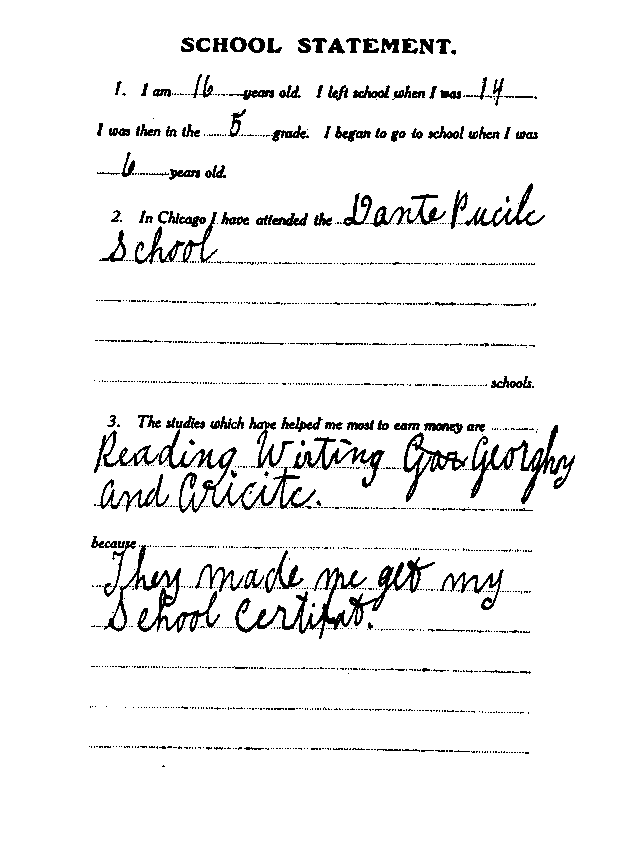The Delinquent Child and the Home
Appendix 6: Copies of the Schedules used in the Inquiry
Sophonisba P. Breckinridge and Edith Abbott
Table of Contents | Previous
Instructions to Investigators
You will probably best introduce yourself to the families by remembering the following facts:
1. The sole purpose of this inquiry is to serve the interests of neglected children.
2. You have been appointed a probation officer because this purpose is recognized by Judge Tuthill of the Juvenile Court, and he will use the facts upon these schedules in determining whether an order of discharge from probation should be entered in cases still open.
3. While the fact that you are a special probation officer should be stated to the child and parents whenever probably helpful in establishing a good understanding, and while the dignity and value to the child of such formal discharge by the court should be emphasized; yet it must be constantly borne in mind that your success in filling the schedules depends upon your courtesy and tact and respectful consideration and not upon your authority.
Try to engage in conversation which follows in rather close order the succession of the questions on the schedule. The order of these questions has been arranged with a view to the natural and easy development of a conversation disclosing the facts sought.
For the field work.
SCHEDULE I is to be completed with Schedule II and Schedule III.
SCHEDULE I I is to be filled by the investigator from the information obtained by visit to the home and interviews with the child, parents and other members of the family or neighbors from whom it is practicable to secure information.
SCHEDULE I I I is to be filled from information obtained from probation officers or employers. In visiting employers do not say anything reflecting upon the child concerning whom you wish to inquire, and only if necessary to your purpose state that he is or has been a ward of the juvenile Court, in no case stating his offence, but merely indicating that you have been directed to learn of his progress.
The questions are divided into two classes; (a) Those like 1, and 17 to 26 on Schedule 11 which are to be answered by direct quotation or observation without any expression of opinion by investigator and (b) Those like 27, 28, 64 and 68 which necessitate an opinion from the investigator.
In answering questions under (b) the investigator will state as far as possible facts forming basis for opinion as well as opinion itself, e. g. in answering No. 28, specify such particulars as stoppage of drains or water supply, leaks in plumbing, foul or insufficient closets,, uncollected garbage, dirty alleys or street. Do not say without details 'sanitary conditions poor.'
In obtaining answers to such questions as 23, 64, 65, 66, your success depends especially upon your tactfulness.To aid in securing specific answers to 1 and 67, parents may be asked if being newsboy, or selling at night, staying in News Alley at night or doing any work away from home at night was bad for boy.
School Statement
It is especially important to secure the School Statement in every case filled out by the child independently in the presence of the investigator.
The purpose of this statement is to obtain a clear indication of the child's command of the English language. In answering 2 and 3 persuade him to put down all he will. If he can't do more have him write "don't know" or in some way secure an attempt at written words.
Do not allow him to sign name.
If child can't write English but can write some other language have statement filled out as he can.
Keep the statement when filled with schedule to which it belongs and at the first opportunity insert case No. in space at top.
If he has attended night school since going to work have him state what he learned and whether he thinks it helped him.
* It has been thought best not to publish copies of two schedules dealing with the Delinquent Girl where Delinquency Involves Sex Relationship. Anyone engaged in a similar inquiry may obtain copies of these schedules from the Chicago School of Civics and Philanthropy.
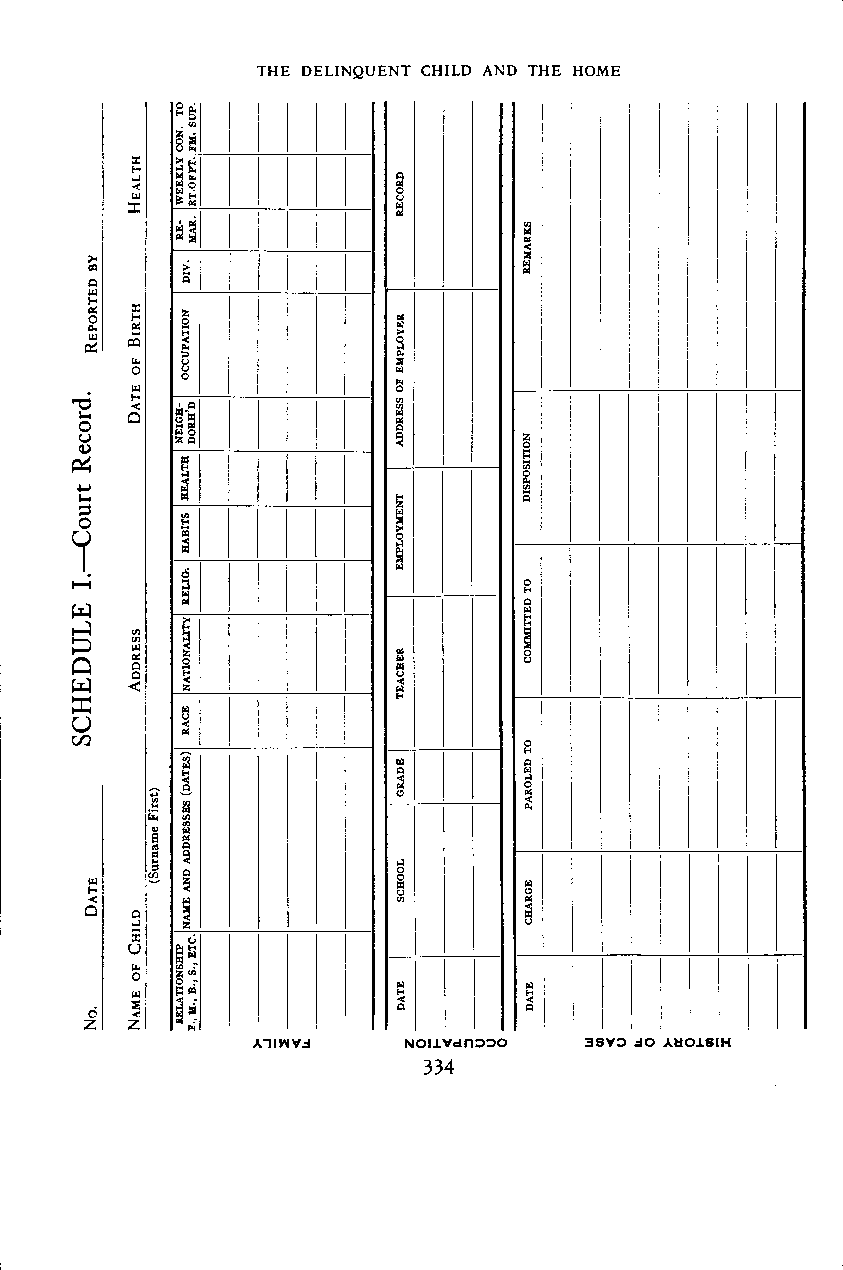
(335)
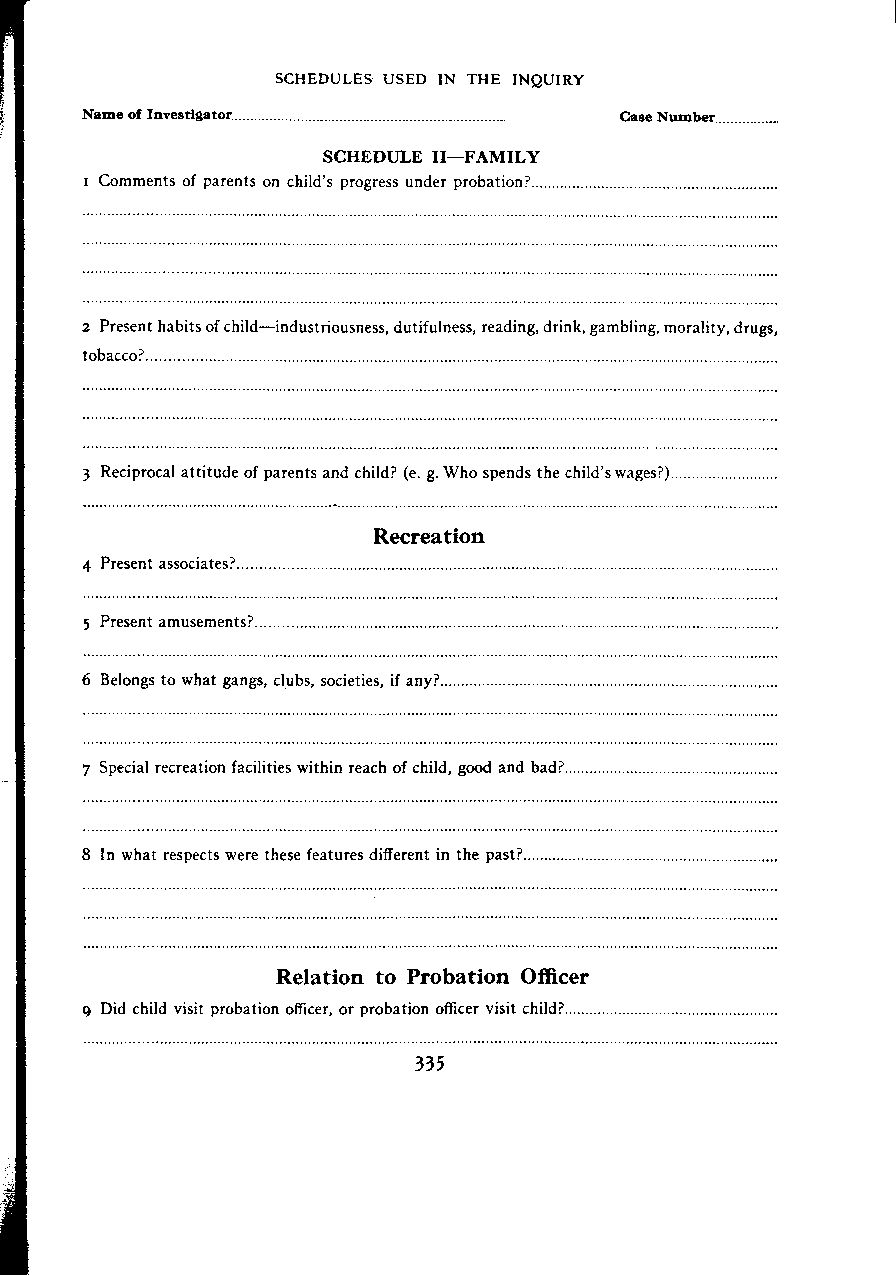
( 336)
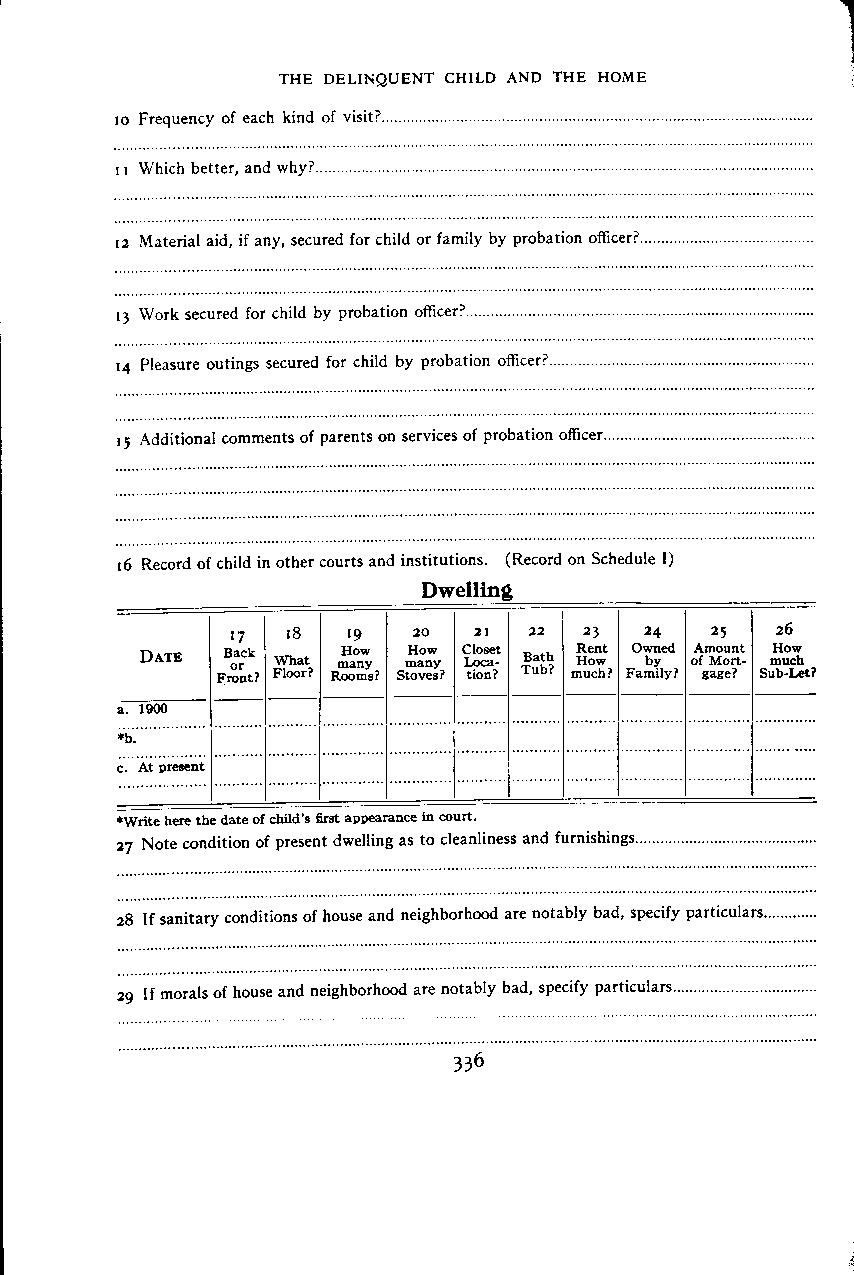
(337)
(337)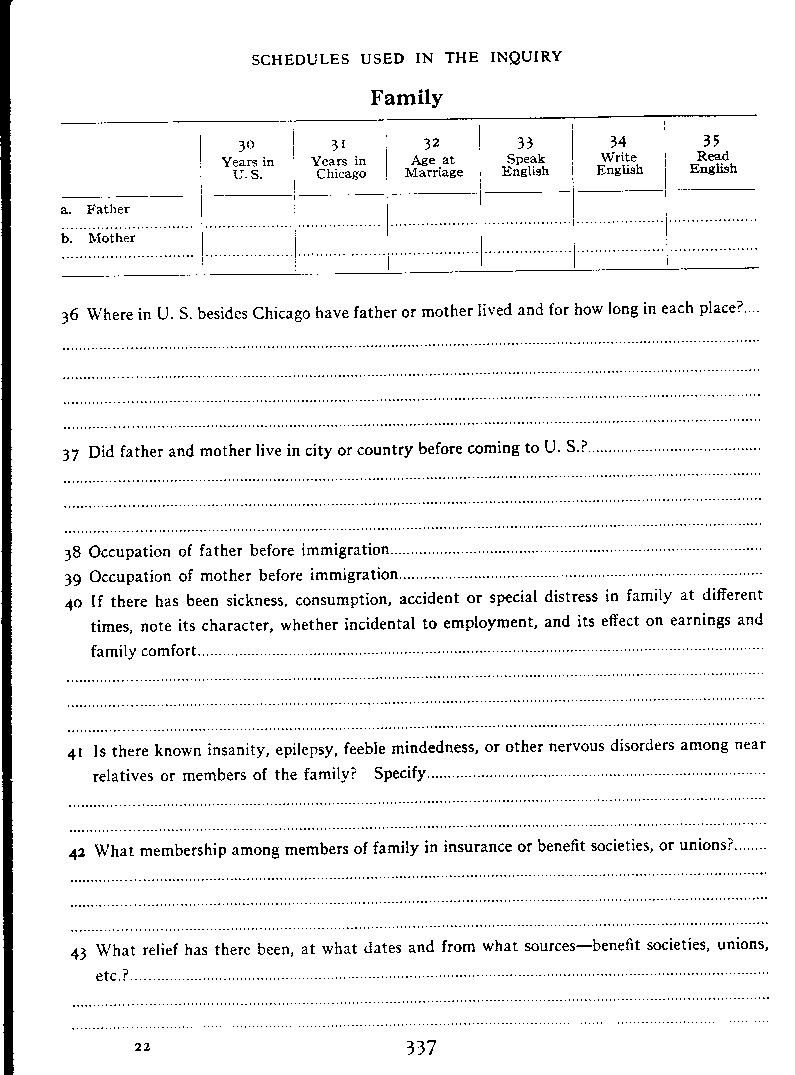
(338)
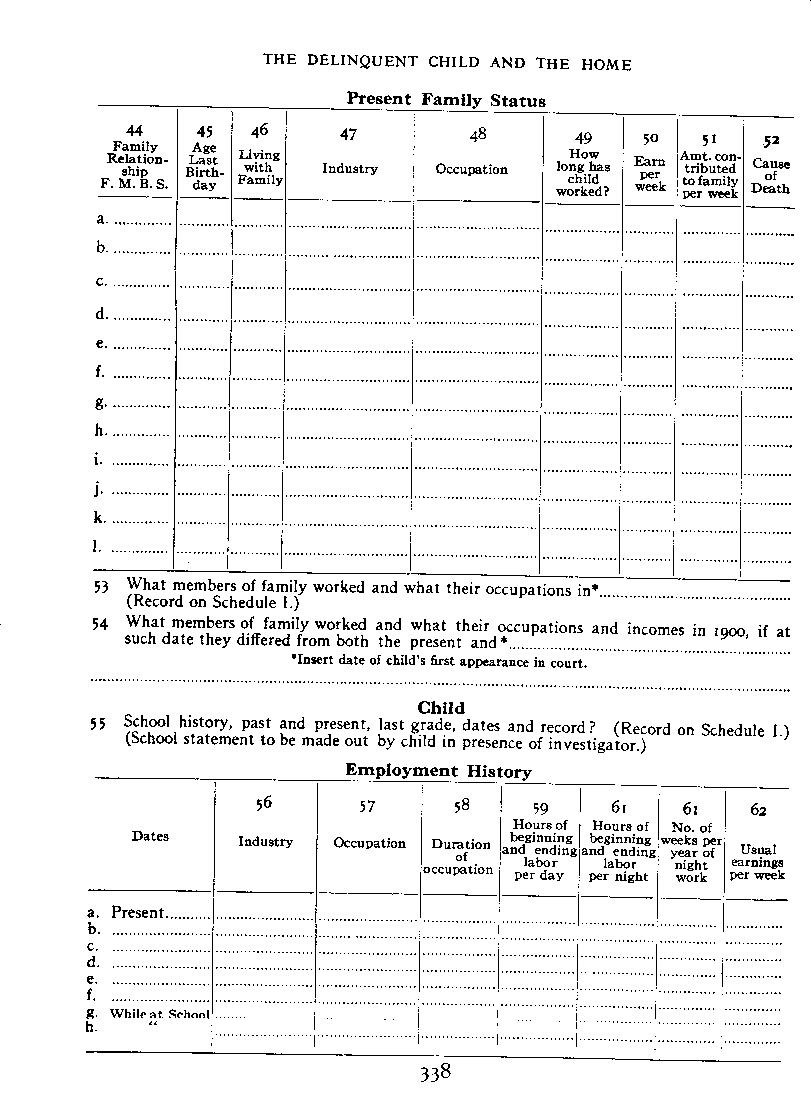
(339)
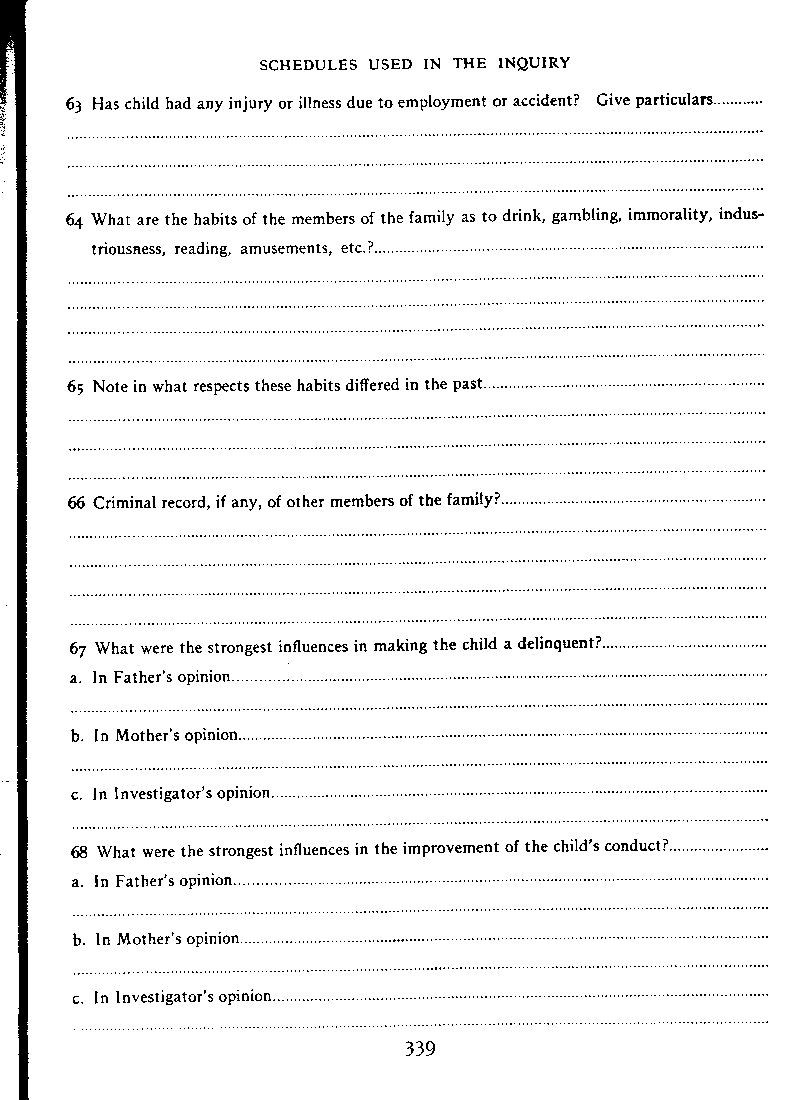
(340)
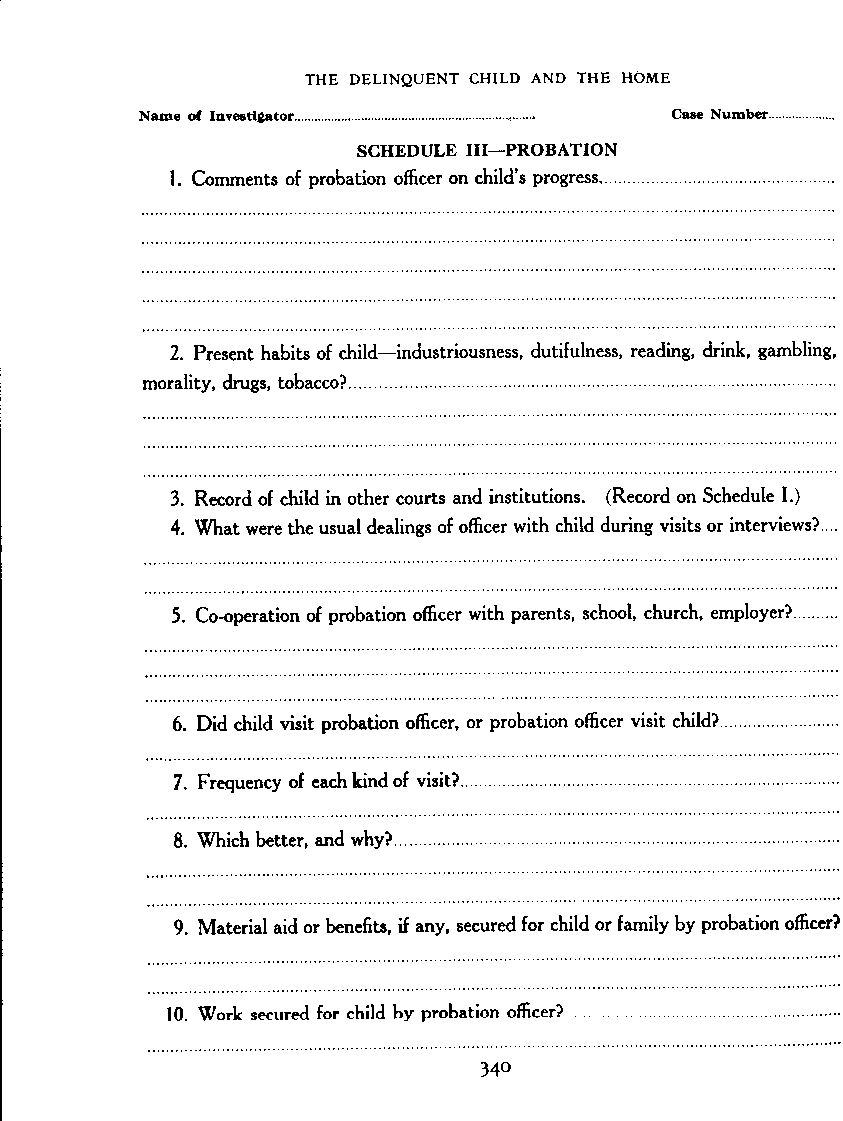
(341)
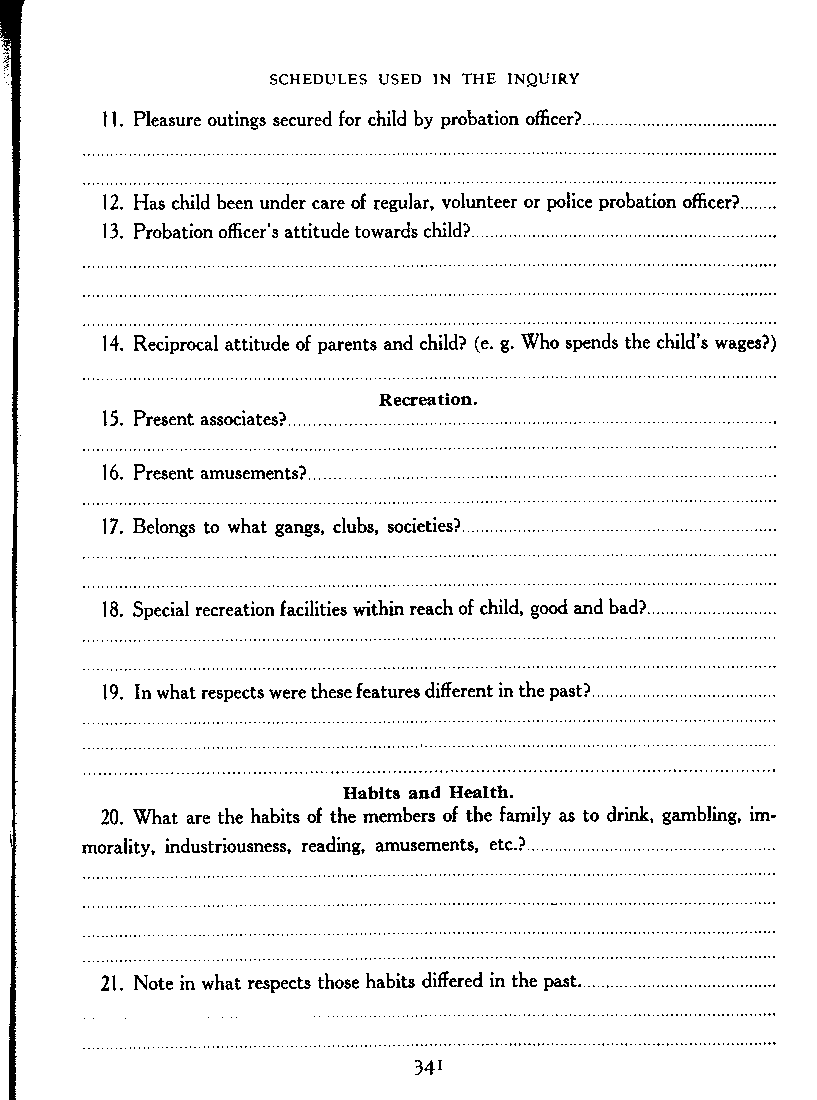
(342)
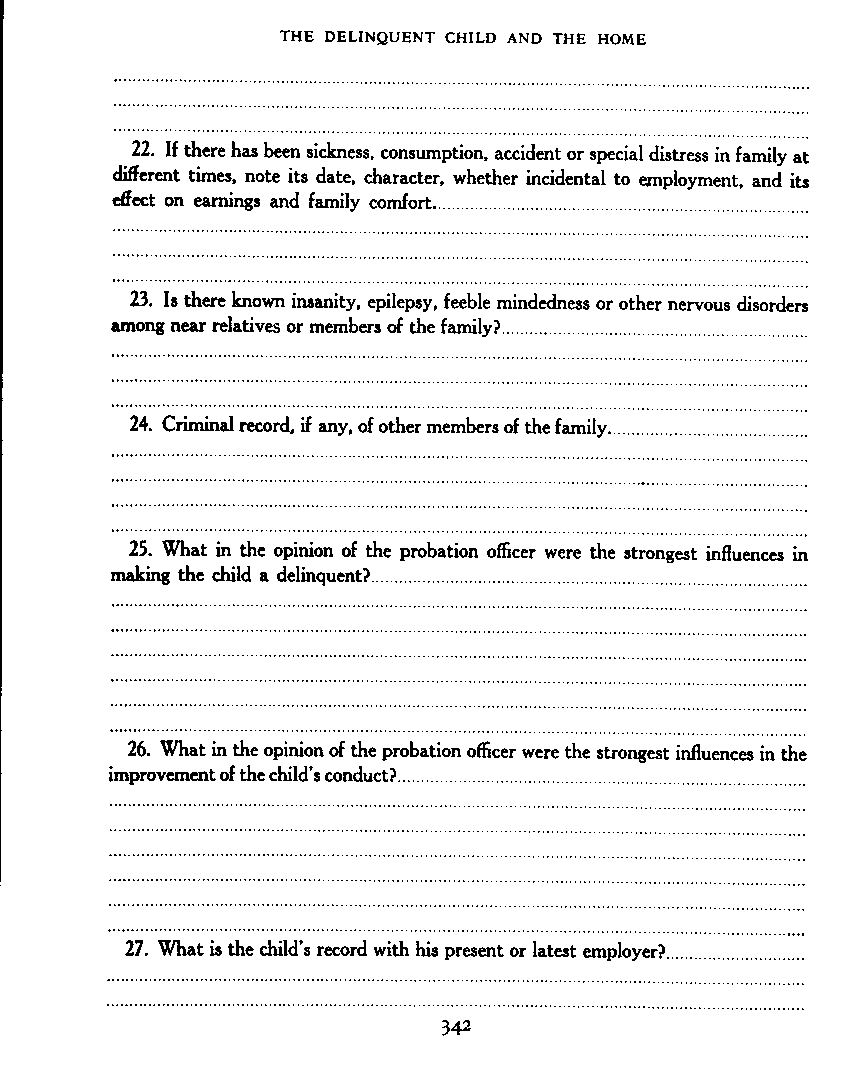
(343)
